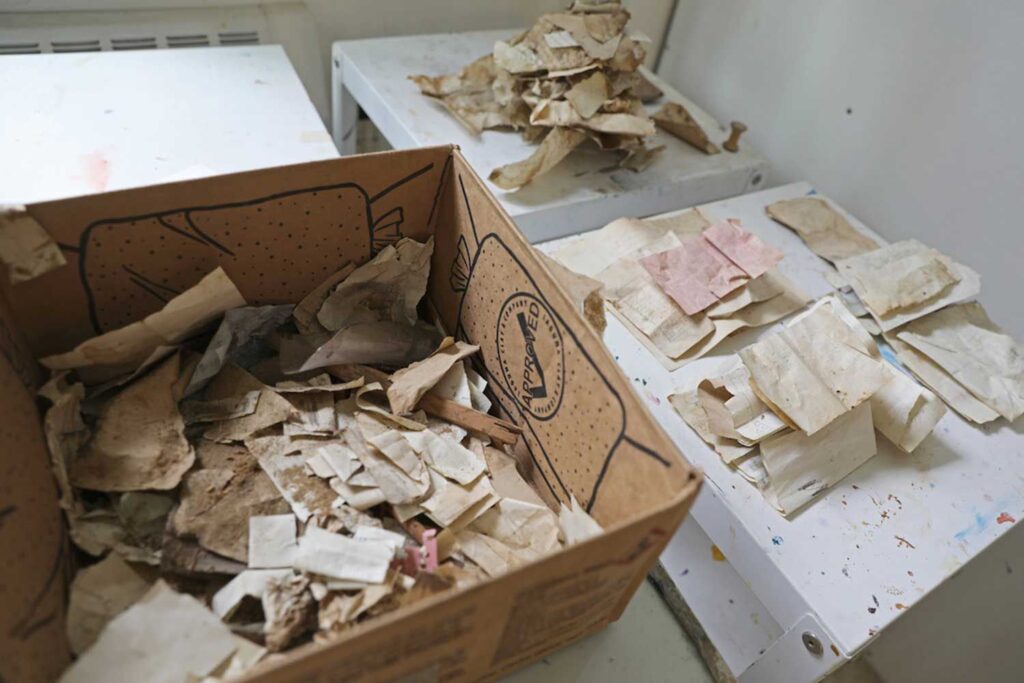
:max_bytes(150000):strip_icc():format(jpeg)/University-of-Southern-Maine-3-romantic-notes-041825-a6f0c12bd22b4424b5870bd1ab7808f5.jpg)
A romantic mystery has been solved.
In December 2024, a series of personal love letters were discovered stashed between walls and floorboards at the University of Southern Maine’s Gorham campus. The notes were found in the Academy Building, which was under renovation at the time. Local historians determined that they are likely from the 19th century.
The building was constructed in 1806, and once served as a college preparatory high school for upper-class students. Stephen Longfellow, the father of acclaimed poet Henry Wadsworth Longfellow, initially secured the land grant to build the school, Bangor Daily News reports.
The notes contained secretive scribbles sent between teenage school crushes, littered with phrases like “my darling.” The letters also carried worries about unrequited affections and the teacher’s comments. The notes are believed to be from the building’s time as a high school, before it was sold to the state of Maine and acquired as university property in 1878, Bangor Daily News reported in 2024.
Never miss a story — sign up for PEOPLE’s free daily newsletter to stay up-to-date on the best of what PEOPLE has to offer, from celebrity news to compelling human interest stories.
Now, the university is working to preserve the shocking discovery for locals and students alike to observe. Dr. Libby Bischof, a historian at the university, told ABC 8 WMTW, “Teaching history here, as a Maine historian, it’s incredible to have these buildings because they become our classrooms, the landscape becomes our classroom. And you don’t have to imagine what the past look like.”
Susie Bock, a coordinator of the university’s special collections department, is currently working to preserve the notes and potentially digitize them for widespread access, per the news station.
University of Southern Maine Office of Public Affairs
“People’s knowledge and interest changes, interpretation of the primary resources is going to change, but that’s why it’s important to keep the primary resources so that we can do those interpretations,” said Bock. “It’s an important part of keeping history from being erased.”




